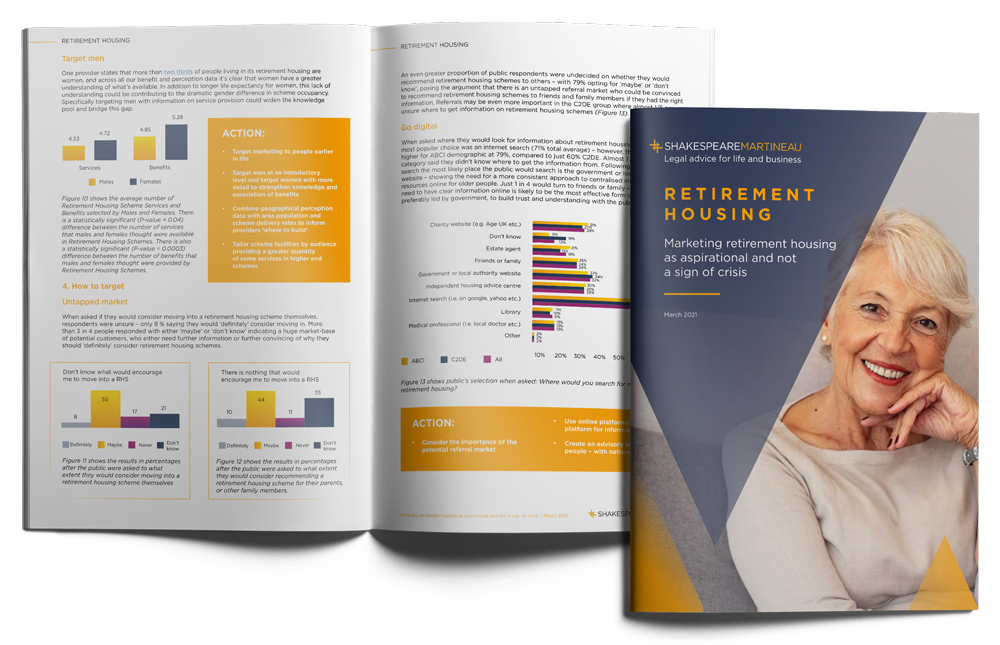We surveyed 2,000 UK adults and 100 representatives from retirement housing providers and then consulted with a cross-industry steering group to discuss the data from organisations including; Housing 21, Lifestory Group, Housing LIN (Learning and Improvement Network), Orbit Group, Elderly Accommodation Counsel, the Local Government Association and the Chartered Institute of Housing.
Overwhelmingly our research reveals the disconnect between the public and housing provider perceptions of the sector. The data clearly shows that the public are unsure about the benefits and services provided by retirement housing schemes – often confusing them with care homes and nursing homes to the detriment of the sector.

